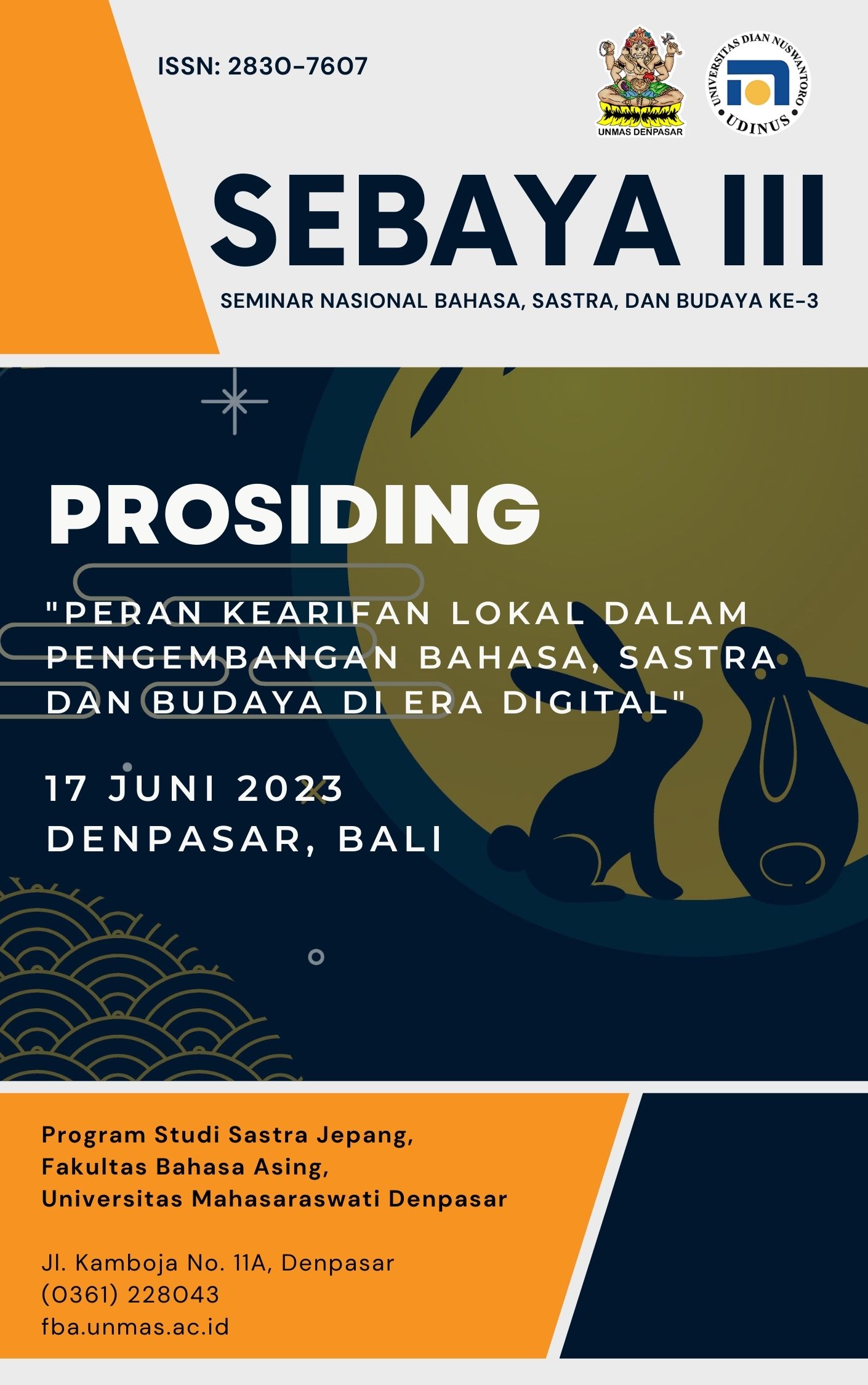MARGINALIZATION OF TOKKOUTAI (SPECIAL ASSAULT FORCES) MEMBERS WHO DID NOT DIE IN WORLD WAR II
Keywords:
marginalization, pilot, tokkoutai, world wars IIAbstract
This article deals with the marginalization of Japanese Force pilots who did not die in special attacks (Tokubetsu kougeki) during World War II. The data was obtained through a literature study of literature published in Japan in Japanese written from interviews with pilots who participated in the mission. The author also reviewed several collections of letters of the pilots as an expression of their hearts before carrying out the task (mission) that should have committed suicide. In this study, research methods with interpretative quality descriptives were used. The theory used is media theory and power of knowledge and relations. The results of data analysis showed that a tokkoutai member who did not die in Tokkou operations was marginalized to the extreme, such as confinement in Shinburyo (Shinbu Dormitory), receiving rude and insulting words constantly yelled at by their superiors and mental stress due to these words. The one-sided view of Tokkoutai members as gods of war during the war changed drastically after the defeat of Japan, such as turning the palm of the hand. In fact, society views former tokkoutai members as traitors to the state. In addition, physical pressure also occurred as for example in the post-war period. They are required to return badges and prize money that have previously been given to families of Tokkoutai members. Another marginalization is when Tokkoutai members who return alive, marginalized and given mental pressure to ensure they die according to the main mission of the Tokkoutai.

